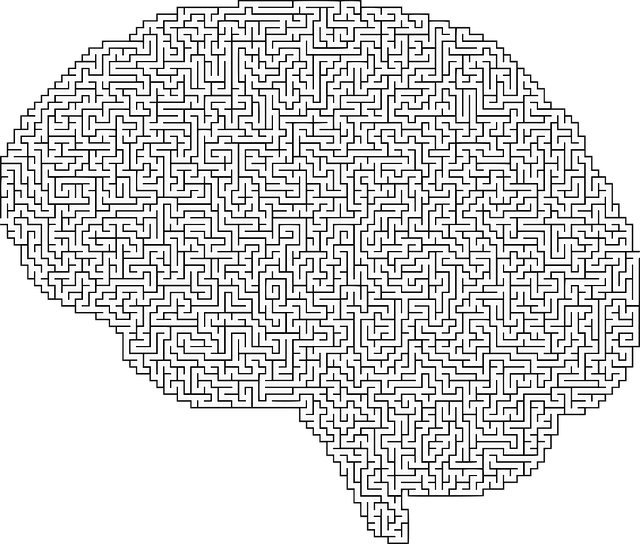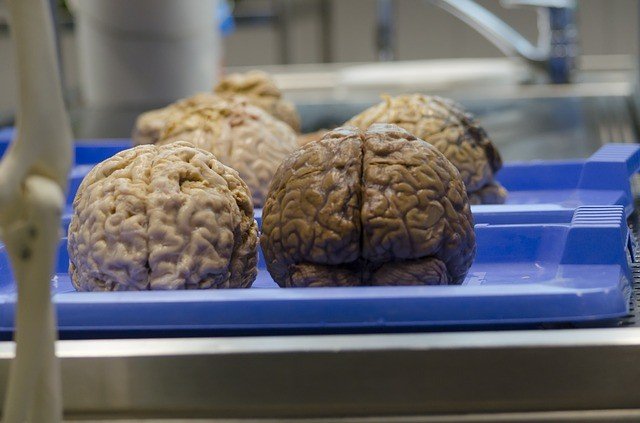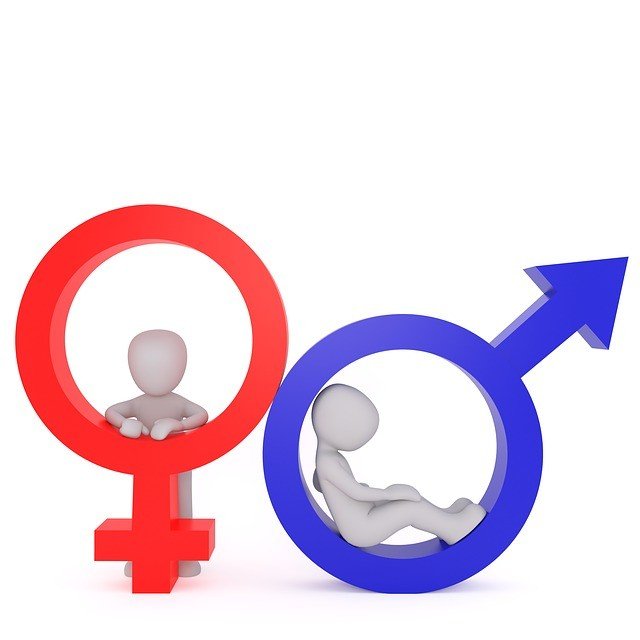
Radical feminists are often skeptical about a concept foundational to trans theory: gender identity, the sense of whether we belong to a particular sex/gender or not. Radical feminists are critical of the very idea of having one’s gender be based on your identity as opposed to being grounded in the biological properties of your body. Thus, radical feminists often define “woman” as an “adult female” where “female” means having certain biological properties such as the capacity to bear eggs, or having the developmental program of egg-production in your DNA-makeup or something like that.
But imagine a radfem named Janice was asleep one night and a group of evil trans neuroscientists decided to kidnap her and whisk her away to a lab, where her brain was extracted from her body and placed in a vat where the biological functions of her brain are supported by a totally artificial body. All that is left of Janice is her brain. No vagina. No breasts. No ovaries or uterus. No capacity whatsoever to make eggs or get pregnant. In many ways her “body” is not gendered at all: it’s just a hunk of brain tissue hooked up to machines.

An outside observer would have a hard time determining what the brain’s gender was without knowing its past history as Janice. Furthermore, the evil trans neuroscientists are clever enough as to provide artificial stimulation to the brain such that the brain falsely believes that it actually has a body and is interacting with the world in a normal fashion. Much like Neo being inside the Matrix, Janice would not necessarily “feel” like anything other than her normal self.
What happens to Janice’s sense of identity as a woman now? She once defined her womanhood entirely in terms of biological features which no longer exist. How can she hold onto them? Let’s assume she was given a theoretical knowledge of herself as a brain-in-a-vat by the evil neuroscientists. Perhaps she reasons that her brain still contains the DNA that carries the information needed to reconstruct those body parts she identified with.
But in my opinion that’s a terribly flimsy sense of identity, being tied to the mere potential of the DNA in your body to produce something that doesn’t exist. That’s a negative identity, based on that which does not exist. It seems unlikely to be the basis for a strong sense of identity as a man or a woman.
One might think that the radical feminist would just say that her brain is sexed as female, that she has a “female brain” but the irony is that radical feminists typically are skeptical of the very concept of brain sex, because brain sex is a foundational concept in trans theory. The most common and mainstream explanation of trans identities is the mismatched brain sex explanation whereby a trans woman might say she needs to transition because she was born with a female brain in a male body.
This mismatch of brain and body causes gender dysphoria and since we are infinitely more capable of changing the body rather than the brain the preferred treatment of both the patients and the doctors is to allow a gender/sex transition that helps reallign brain and body by changing the body.
Radical feminism in its extreme form wants to morally mandate trans people out of existence and prevent as many transitions as possible so they are opposed to the idea that there is even such a thing as a “female brain” or a “male brain” because that seemingly provides sufficient medical explanation for why transition is necessary. Radical feminists typically believe that male and female brains are only different insofar as they are influenced by society. Otherwise they start off as identical but end up producing different behaviors because they are socialized to do so.
Personally, I feel like any legitimate answer to the nature vs nurture question of sex/gender will probably include at least some nature. In practically all other animal systems in nature there are evolved adaptations in males and females that make their brains distinct in at least some small way – it would seem incredible to me that humans are the drastic exceptions to the entire scheme we see in Nature. While yes it is plausible that nurture is very, very important for the development of brains it is equally likely that our evolutionary history also plays an important role in the sex differentiation of the body, including the brain.

The latest science suggests however that there is more overlap between male and female brains than difference and that your average female brain is composed of not just “female” parts but also many “male” parts. Each of our brains is a mosaic of male and female parts:
analysis of MRIs of more than 1,400 human brains from four datasets reveals extensive overlap between the distributions of females and males for all gray matter, white matter, and connections assessed... most brains are comprised of unique “mosaics” of features, some more common in females compared with males, some more common in males compared with females, and some common in both females and males.*
But in trans people the mosaic is arranged in such a way as to radically mismatch with the body, suggesting that some people’s internal cognitive representation of the sex can be aligned so significantly with one gender/sex or another that it generates gender dysphoria.
Going back to Janice, my feeling is that Janice’s sense of womanhood would be as strong as ever as a brain-in-a-vat. In fact, I would wager that her sense of womanhood would remain almost entirely unchanged. Even if she has an abstract sense of herself as being a brain-in-a-vat the internal representations in combination with the artificial stimulation inside her brain fully determine her subjective experience, including her felt sense of identification as an adult female or woman. But without actually owning a vagina or a womb, can Janice’s claim to womanhood be based on anything other than what trans theorists call gender identity?
This is the great irony of Janice’s predicament: in order to maintain her self of womanhood, Janice’s brain must be creating an internal representation of which sex/gender she belongs to and an alignment of that representation with the artificial inputs giving her a sense of body. But that internal representation is precisely what trans theorists mean when they talk about “brain sex” and “gender identity” – it’s the brain’s way of telling itself what gender/sex it should belong to, a sense we all have in some way or another, even if that sense is telling us we don’t belong to any gender (a-gender).

*Adapted for steemit from my blog: transphilosopher
image: pixabay
Reference:
- (Joel, D., Berman, Z., Tavor, I., Wexler, N., Gaber, O., Stein, Y., ... & Liem, F. (2015). Sex beyond the genitalia: The human brain mosaic. Proceedings of the National Academy of Sciences, 112(50), 15468-15473.)
The brain cells of Janice would still consist of two X chromosomes meaning her sexual identity is female. As this is what you suppose 'radical feminists' base their theory on.. that female biological capabilities are responsible for identifying as female then gender identity would be determined completely by the social structure in which Janice has experienced.
As a result she may perceive herself as identifying as male of female depending on these experiences. This shows that depending on the societies gender normalities the results of Janices identity may be different.
As an incredibly simple example just for context she may have grown up in a house where in society A playing football and dressing in boys clothes were frowned up she may end up identifying as transgender in the future. However if Janice grew up in society B where those activities were accepted for girls to join she may not have ended up identifying as the opposite gender to her sex. Obviously there are many more factors that play in the real world but that is the general concept and perhaps if society were more accepting of people and abolished gender normalities could people feel comfortable in their own bodies.
Downvoting a post can decrease pending rewards and make it less visible. Common reasons:
Submit
Really cool to find this kind of content on Steem. I've been weary of getting into crypto because there's always seemed to be a lack of transfemme people and the environments themselves have felt antagonistic.
That said, it's interesting to hear another person's opinion on the topic. I wish there was some other kind of language out there, which allowef us to speak the fullness of a concept. Like, if there were a word which described trans identity as a becoming, rather than this fixed thing that Woman has been — one might say "transing." (Obviously, this is a terrible example.)
Great post.
Downvoting a post can decrease pending rewards and make it less visible. Common reasons:
Submit
Good thought experiment!
I think part of the problem is that our identities are partly socially decided. In my theory of use I use the thought experiment of Monday-Tom and Tuesday-Tom, and explain why, although they undergo changes, they are seen as the same Tom, but also how, if the change is significant (complete memory whipeout, for instance), they are no longer seen as the same Tom.
In a similar fashion, let's say I got a glass cup that I use to drink water and it's now fractured and leaking. So I no longer use it to drink water, cos it can't hold it. It's essentially no longer a glass cup. More like just glass. Similarly, a "woman" is something that can be used by males in society in a certain way. Among those uses is childbearing. Among those uses is "the way my family reacts to her", etc. So a woman similarly might call a man "not a real man" because one of his uses is, oh I don't know, "risking his life to save her" or "financial provider" etc., so any time she can't use him the way she wants or expects to, she describes her feeling as "you're not a real man" etc.
So if we define objects according to how we use them, we will remove their identity when they can't be used in the "proper" way.
But if technology comes along and makes brains flexibly useable (can put them in different bodies willy-nilly), then I expect our concept of identity will broaden to include all those new uses.
Downvoting a post can decrease pending rewards and make it less visible. Common reasons:
Submit
You're speculating about an empirical question. Just do the experiment :)
Downvoting a post can decrease pending rewards and make it less visible. Common reasons:
Submit
In reply to your question, i believe the brains gender identity will depend on its environmental circumstances however the sexual identity will forever be female. You can't change Biology.
Downvoting a post can decrease pending rewards and make it less visible. Common reasons:
Submit